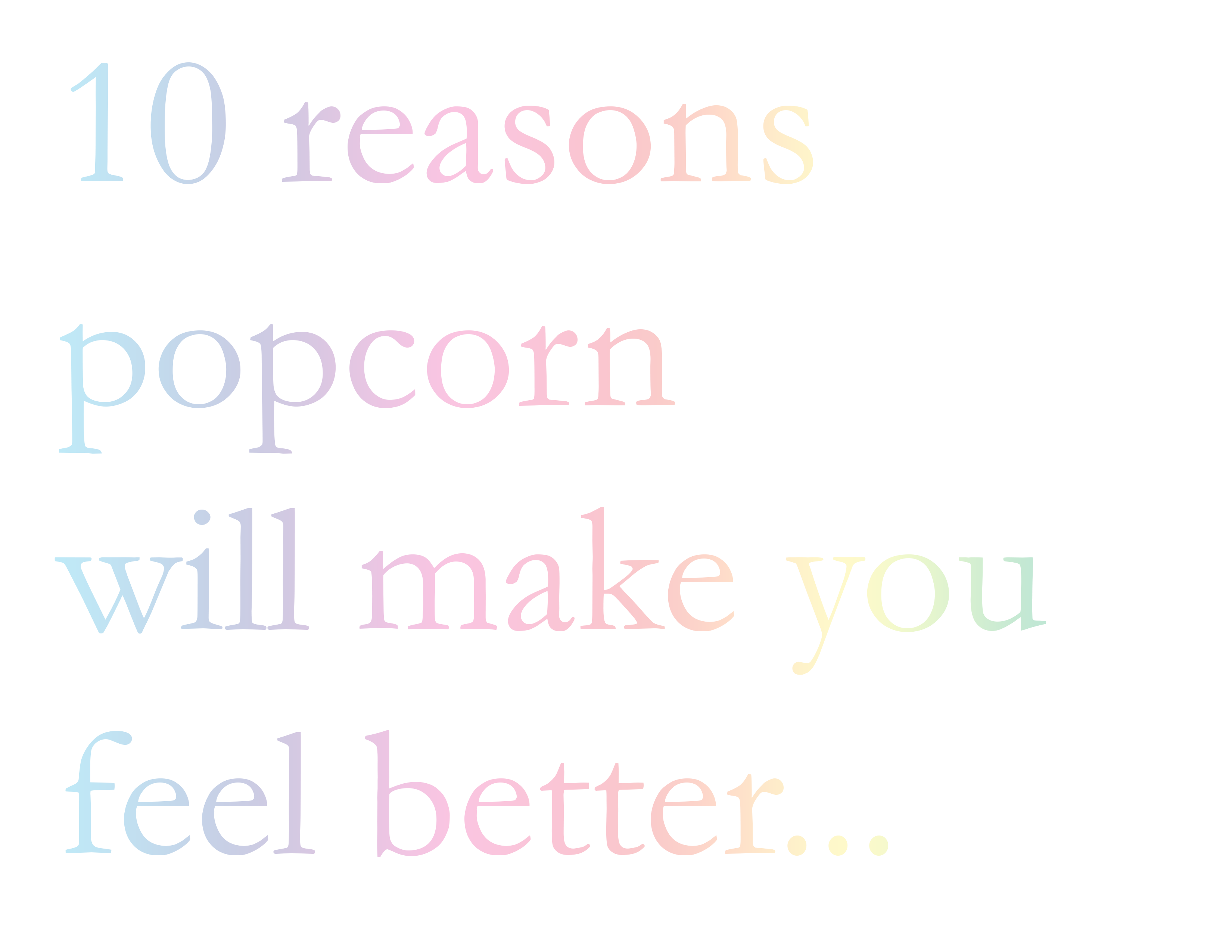
10 Reasons Why Popcorn Will Make You Feel Better was a research project presented as an interactive performance at an Information Experience Design seminar at the Royal College of Art.
In 2017, the most clicked headlines online contained the phrase: "will make you". The most appealing number, according to Buzzsumo.com (who analyzed 100 million headlines) and the Nielson Norman Group was 10. Sentimental and emotional headlines carried the most impact on social media. Through this research, 10 reasons popcorn will make you feel better... was shaped. Additional framing and content is borrowed from the MVPI and FIRO-B personality assessments, which have been used by the likes of Google for employee analysis.
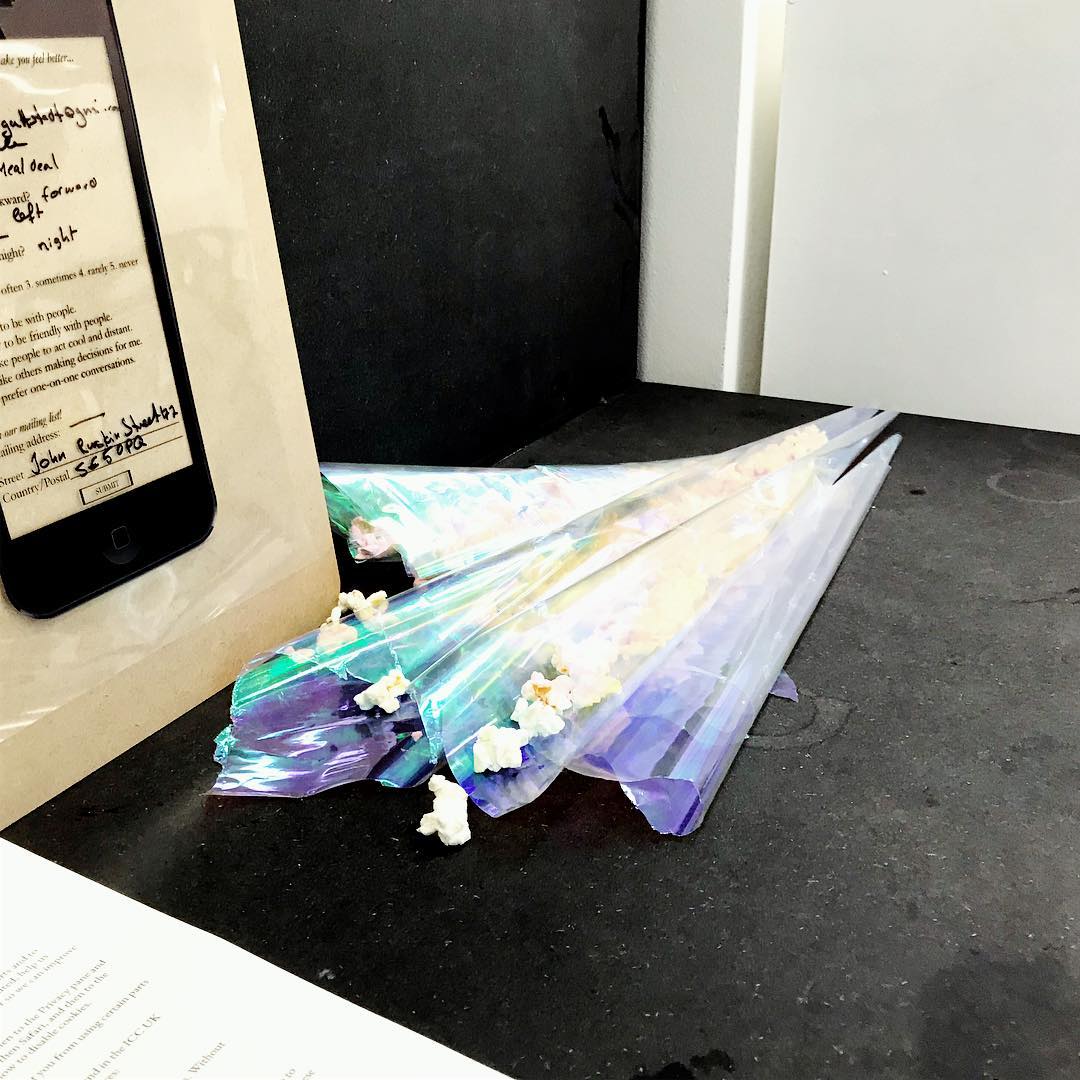
Questions around online data incentivisation, privacy (cookies policy), information exchange, and user experience take physical form. Current research resources reveal that with over a 100 million headlines analysed, the most clicked phrase since 2017 is ‘will make you’. The most clicked number has been 10, and the most appealing sentiment is something that conjures up happiness or self-improvement – hence the project title.
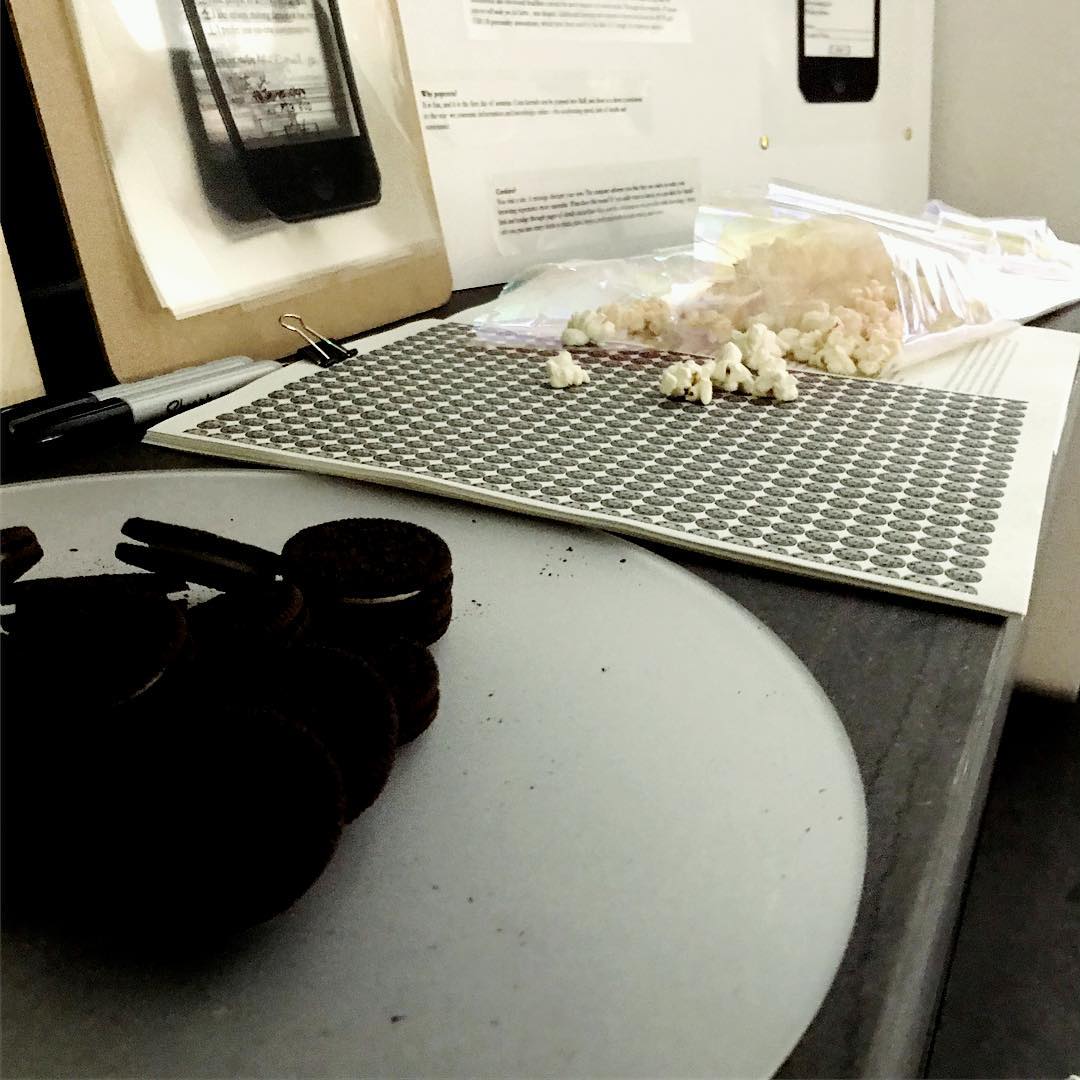
The seed represents an ancient, organic form of information and knowledge exchange. Within the seed, the kernel processes inputs of minerals, water, and sun and outputs the info to the stems and roots as it grows. The kernel is also at the centre of computation, where it is the central processing unit directing all inputs and outputs.
Working with the idea that seeds are containers of ancient systems of information exchange, the corn kernel is popped into fluff to be quickly consumed as is criticised as part of contemporary pop culture's relationship with and consumption of online information and entertainment consumption.
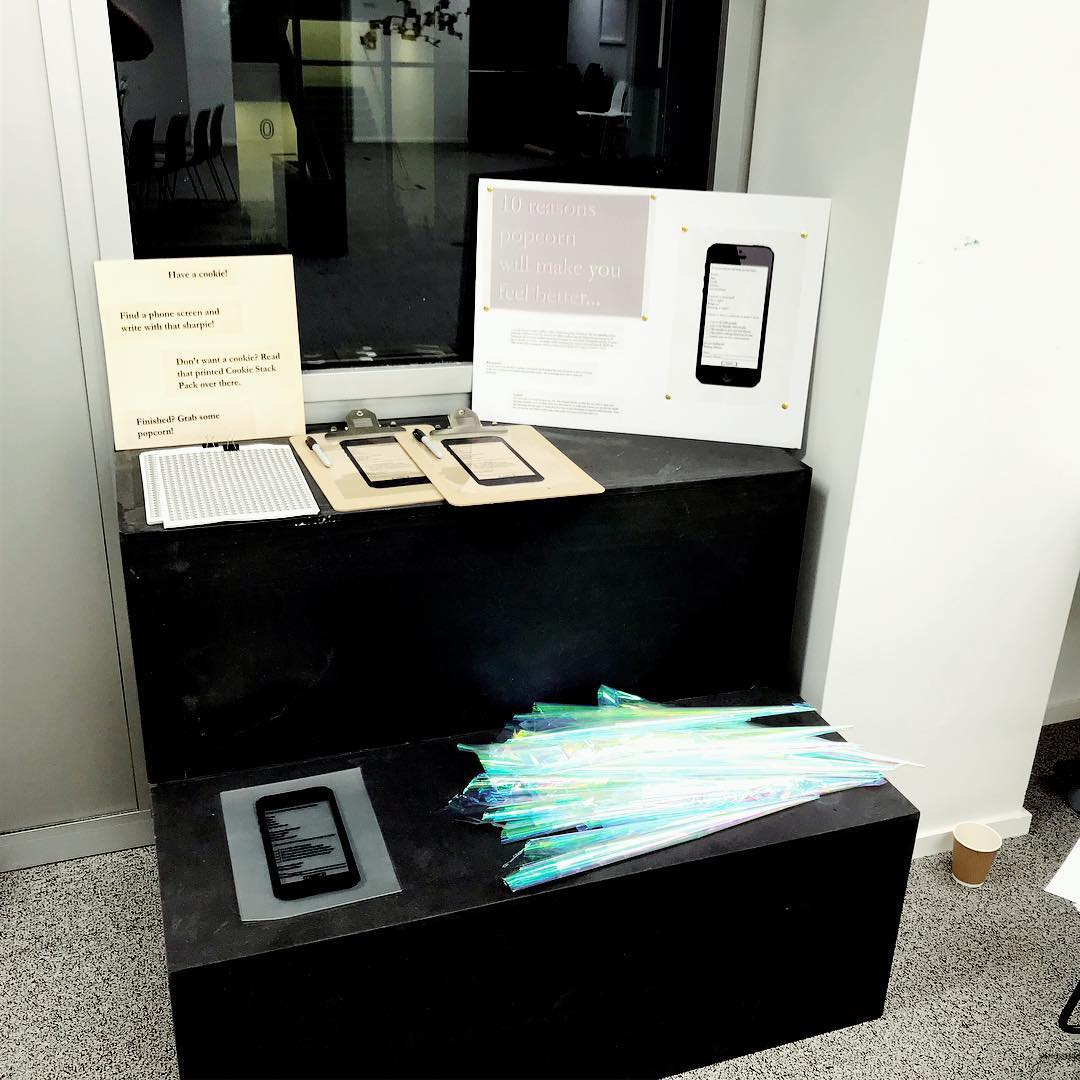
Transparent prints of smartphones containing forms asking for an individual's basic information as well as questions derived from research on UX behaviour analysis and personality tests such as the MVPI and FIRO-B were made available and filled out by participants as they munched on a cookie for an iridescent bag of popcorn.
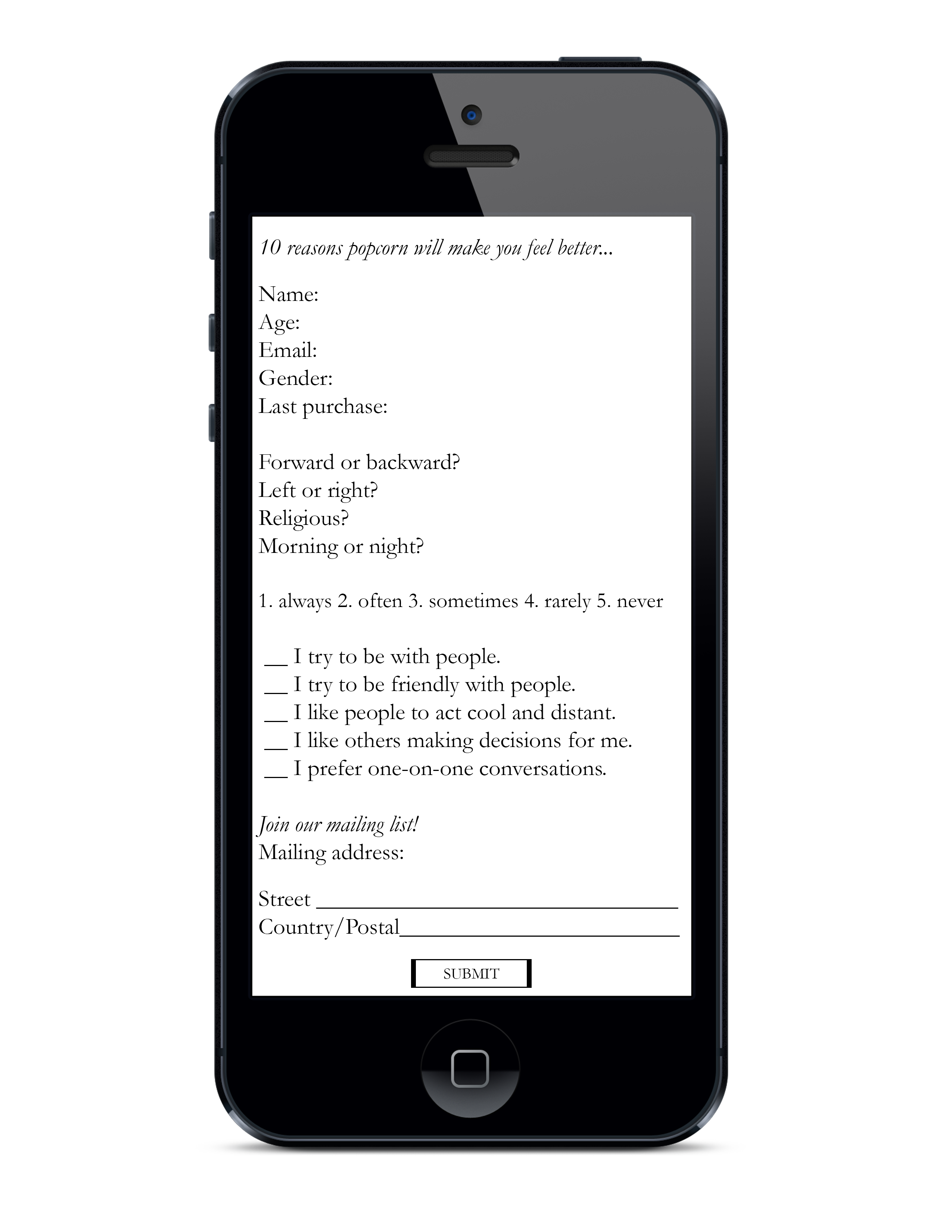
Cookies? You visit a site. A message disrupts your view. The company informs you that they use cookies to make your browsing experience more enjoyable. What does this mean? If you really want to know, you can click the ‘details’ link and trudge through pages of details about how they use the information you provide while browsing – from info you put into entry fields to clicks, time, topics, preferred colours and words, and so on.
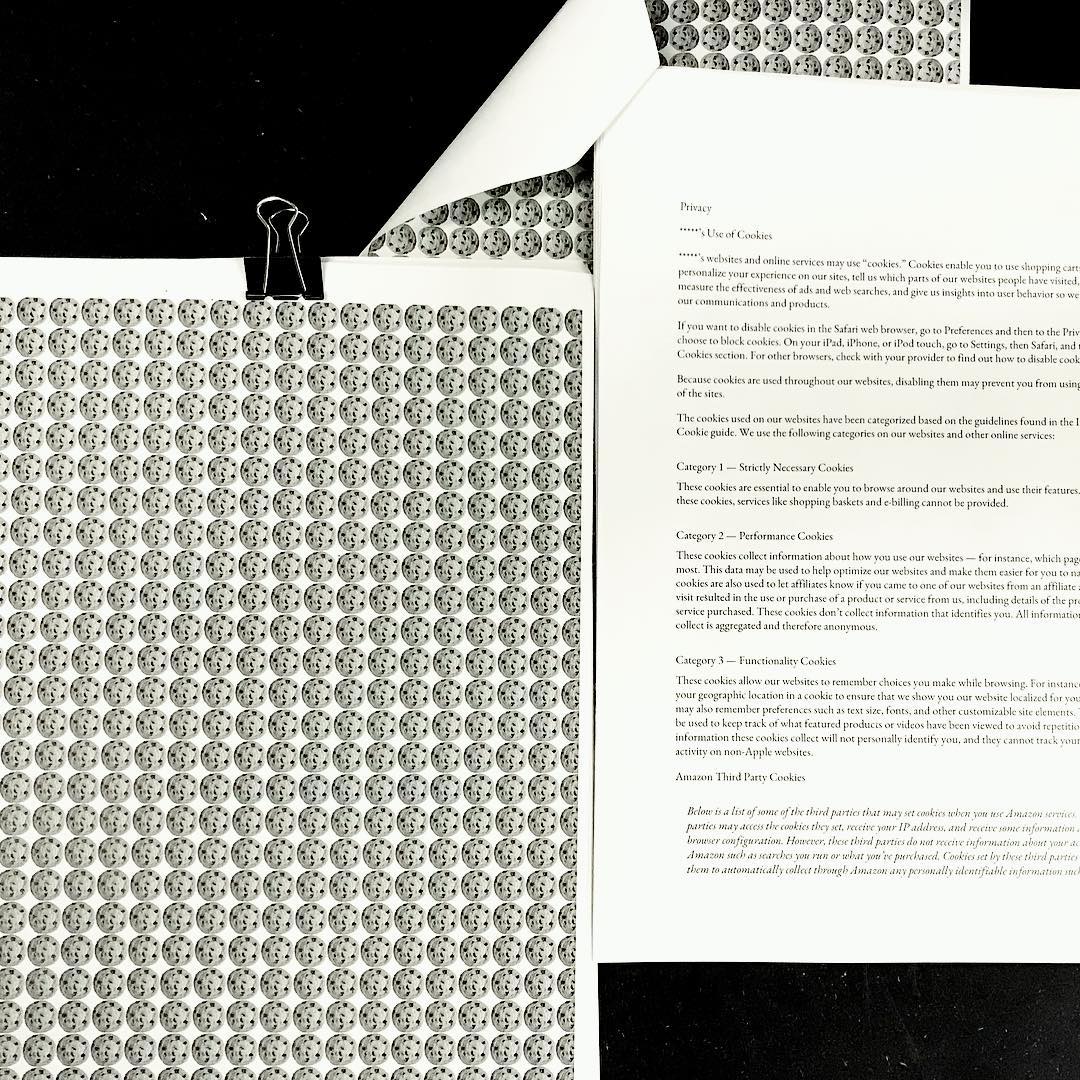
Accompanying the presentation were stacks of cookies policies from select corporations for individuals to read if they did not want a cookie.